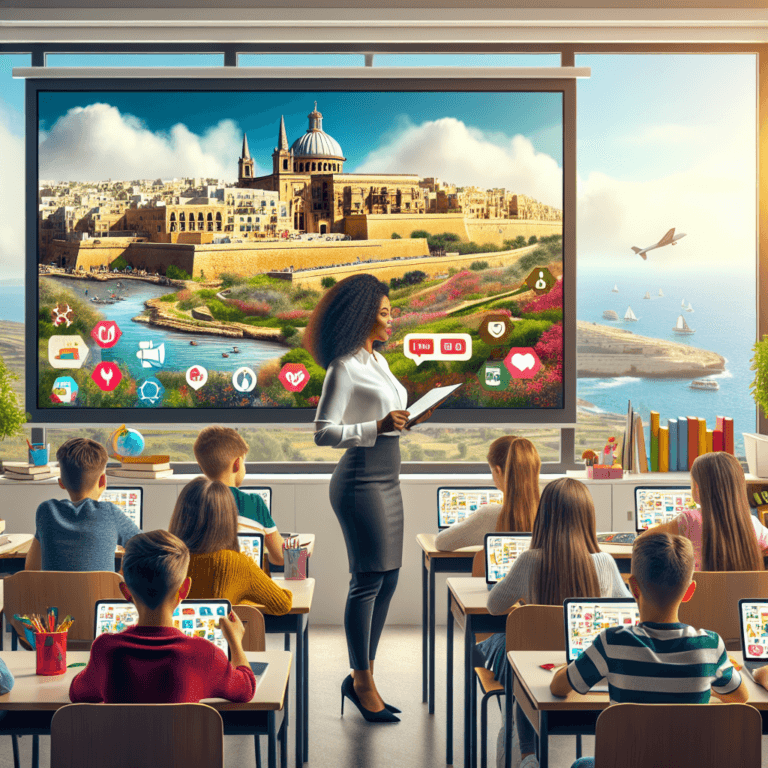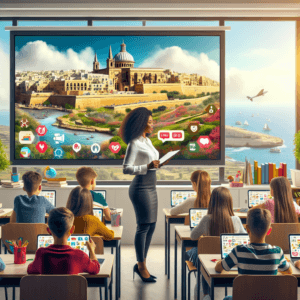Innovative Teaching Methods in Malta’s Educational Landscape
Malta’s educational system is undergoing a significant transformation as it adapts to the demands of a rapidly changing world. With technological advancements and diverse student needs becoming more prominent, innovative teaching methods are being embraced to enhance learning experiences across the archipelago. These approaches not only aim to improve academic performance but also to cultivate critical thinking, creativity, and collaboration among students.
Blended Learning
One of the most prominent teaching methods making waves in Malta is blended learning. This model combines traditional classroom instruction with online learning components, allowing educators to tailor their teaching techniques to meet the varied needs of students. With this method, teachers can provide personalized feedback and resources, enhancing the learning experience. Schools across Malta have integrated various online platforms that facilitate interactive lessons, discussions, and collaborative projects, effectively bridging the gap between in-person and digital learning.
Project-Based Learning
Project-based learning (PBL) has gained traction as a dynamic classroom strategy that encourages students to engage in real-world challenges. In this approach, learners work on projects that require critical thinking, problem-solving, and teamwork. Maltese educators have implemented PBL in various subjects, allowing students to pursue their interests while applying academic concepts. Whether it’s creating a community garden or developing a marketing strategy for a local business, PBL initiatives not only foster creativity but also emphasize the importance of social responsibility among students.
Flipped Classroom Model
The flipped classroom model is transforming the traditional flow of teaching. In this method, students are introduced to new concepts at home through videos or online resources, allowing classroom time to be dedicated to hands-on activities and discussions. This approach has been effectively adopted in various Maltese schools, enabling teachers to provide more individualized support during class. By shifting the focus from direct instruction to active learning, students take charge of their education and engage more deeply with the material.
Gamification
Gamification is another innovative technique being utilized in Malta’s educational landscape. By incorporating game-like elements into lessons, educators are able to motivate students and make learning more enjoyable. This method often includes challenges, rewards, and achievements that encourage student participation. Schools are increasingly using educational games and interactive platforms to enhance subjects such as mathematics, science, and languages, resulting in improved engagement and retention of knowledge among students.
Collaborative Learning
Collaborative learning emphasizes the importance of working together to achieve common goals. This method has been widely adopted in Malta’s classrooms, fostering an environment where students learn from each other and develop essential social skills. Group projects, peer reviews, and team-based activities allow learners to share perspectives and collaborate effectively. Educators in Malta harness the power of collaborative learning to create a sense of community within the classroom, enhancing not just academic performance but also interpersonal relationships among students.
Culturally Relevant Teaching
Given Malta’s rich history and diverse population, culturally relevant teaching practices are becoming pivotal in the educational approach. This method encourages educators to incorporate students’ cultural backgrounds into the curriculum, making learning more relatable and meaningful. By integrating local history, literature, and traditions into lessons, Maltese educators foster a sense of identity and pride among students while promoting inclusivity and respect for diversity.
Conclusion
As Malta’s educational landscape evolves, innovative teaching methods are key to preparing students for the challenges of the future. Through blended learning, project-based learning, flipped classrooms, gamification, collaborative learning, and culturally relevant teaching, educators are redefining the boundaries of conventional teaching. These approaches not only aim to enhance academic performance but also to foster a love for learning, essential skills, and a sense of community among students. As Malta continues on this progressive educational journey, the impact of these innovative methods is likely to resonate for generations to come.







